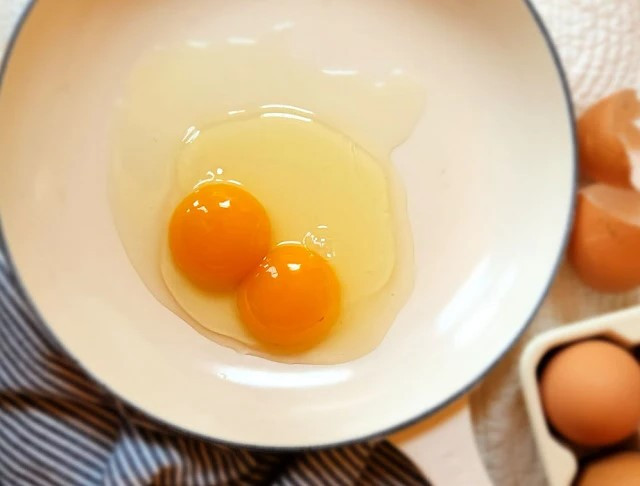Eggs
posted on
June 30, 2025
Every morning, our hens lift their heads from beneath their wings and wake as dawn breaks across their pasture. And every morning, they set out in search of bugs, grass, and worms, because that's what hens enjoy the most. They have ready access to fresh water and non-GMO grains to make sure their nutritional needs are met.
And every morning, each hen hops into the nest boxes and gives us a beautiful brown egg. We have invested in sloped "roll-away" nest boxes for our laying ladies, so that the egg gently rolls away from the hen after she lays it. This genius method prevents our eggs from getting dirty or covered in manure. Since we regularly move our hens to fresh pasture, the conditions are pretty clean to begin with.
We move the hens' shelter every few days so they have plenty of goodies and a fresh area to sleep on at night. This is called rotational grazing, and benefits both the birds and the soils, with the chickens loving the fresh grasses and the soils thriving on that natural fertilizer!
And here's the neat part:
When a hen lays an eggs, she protects it with an invisible outside layer sealing the shell. This is called a bloom, and prevents any bacteria from entering the egg. As long as the egg does not get wet, this bloom will keep the egg for up to 30 days at room temperature.
So, why are store-bought eggs always refrigerated? Because the United States has strange notions.🤭 No, seriously, the United States is one of the few countries that requires companies to wash and refrigerate eggs in stores.
Store-bought eggs are washed with water and then sprayed with a commercial sanitizer. The USDA has an extensive list of allowed sanitizing solutions, which include chlorine, ammonia, and various acids. Eww, who wants that in their body?! If you buy eggs in a supermarket, you can be sure they were washed. And what they are washed in is NOT disclosed by the egg producers.
And while this sanitizing may help protect against salmonella, it also creates further bacterial risk by removing the bloom. Now the eggs need refrigerated to keep the accumulation of bacteria at bay.
What's the purpose of these regulations? Well, they are necessary for the conditions that most store-bought eggs come from. (Think cramped barns, huge accumulations of manure, and a pitiful amount of space for the hen to move around.) Yup, bacterial infections are a real concern if you're producing eggs this way!
Brenneman Farms and small family farms like ours, that truly raise our hens on pasture, go beyond that by creating conditions that promote the health of the hens and therefore their eggs, making it possible to leave the bloom intact.
Brenneman Farm's Eggs:
- The eggs are unwashed.
- The chickens are pasture raised, foraging for bugs and seeds and grasses as much as the weather allows.
- The chickens are fed a GMO free feed.
- The chickens are 100% unvaccinated.
Operating on a small scale keeps it possible to collect and package our eggs by hand. In the afternoon, ...........out to pasture with the ranger to collect that day's eggs. They place the eggs into baskets then take them up to the packing room, where they are sorted and packaged by hand. Most eggs we can simply take from the basket directly into your egg carton. It's about as fresh as you can get.
What if there is a small spot that needs to be cleaned? We gently spot-treat it. That means no chemicals, no washing, just a little elbow grease to remove the spot and preserve the bloom.
Caring for our hens like this creates the ideal conditions for keeping eggs at room temperature.
If you want to keep refrigerating your eggs, that's fine too! In fact, even when the bloom remains intact, refrigeration can be helpful for extending the shelf life of eggs. Refrigerated farm-fresh eggs with the bloom can stay fresh for up to three months.
If you're looking to reduce toxins, our pastured eggs are the way to go!



